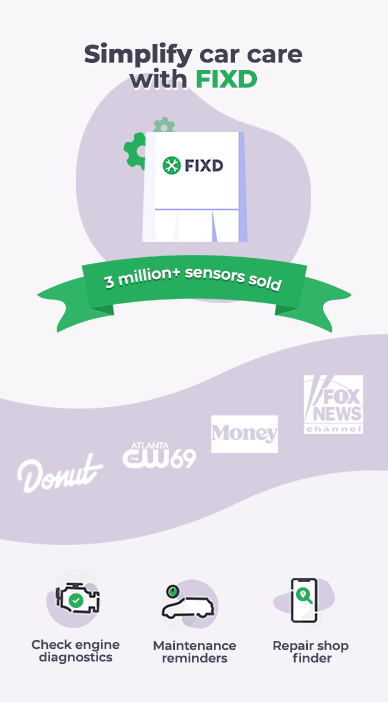Claude AI assisted in this article’s writing.
Below is a summary of your 2023 Toyota Camry warranty coverage and how long your coverage lasts. At the bottom of this article is the full 2023 Toyota Camry warranty PDF, if you wish to explore further.
Warranty durations listed below are in terms of the vehicle’s mileage or age. If a type of coverage is valid for three years or 36,000 miles, coverage lasts until the vehicle reaches 36,000 miles or until it’s three years old, whichever occurs first.
For more information about Auto Warranties, you can check out this directory containing everything you need to know about Auto Warranties arranged by system.
| Warranty | Duration |
| Basic | 3 years/ 36,000 miles |
| Powertrain | 5 years/60,000 miles |
| Corrosion Perforation | 5 years/unlimited miles |
| Air Conditioning | 1 year/12,000 miles |
| Battery | Not specified. Assuming it’s covered under the Basic Warranty |
| Federal Emissions | 2 years/24,000 miles 8 years/80,000 miles(Specific Components) |
| California Emissions – | 3 years/50,000 miles 7 years/ 70,000 miles(Long Term) |
If you need more detailed information about the warranties covered in this article, you can find the link to the original factory warranty PDF towards the end of this article. Alternatively, you can review the frequently asked questions (FAQs) section at the very bottom of the article which provides more warranty details. Please refer to the warranty PDF link if you would like to view the complete and official warranty terms from Toyota.
2023 Toyota Camry Factory Warranty

Given the in-service date of January 2023 and current mileage of less than 12,000 miles, none of the factory warranties listed would have expired yet.
If you find the various factory warranties for the Toyota Camry confusing, I recommend checking out our article, The Ultimate Guide to Car Warranties. This guide clearly explains what each of the major warranties cover, so you can better understand what is protected for how long.
The factory warranty for the Camry includes the Basic, Powertrain, Corrosion Perforation, Air Conditioning, Battery, Federal Emissions, and California Emissions warranties. All of these components make up the comprehensive factory warranty provided by Toyota on new Camry purchases.
Our article goes through each one in detail, so you know exactly what is covered under the 3/36,000 mile Basic Warranty versus the longer-term 8/80,000 mile Federal Emissions warranty, for example. By educating yourself on what your Camry’s factory warranty does and does not include, you can make informed decisions about any additional protection you may want to purchase. Check out our Ultimate Guide for a full overview of factory warranties like those offered on the 2023 Toyota Camry.
Basic Warranty
The Toyota New Vehicle Limited Warranty (also referred to as the basic warranty) covers repairs needed to correct defects in materials or workmanship of any part supplied by Toyota for 36 months or 36,000 miles from the in-service date, whichever comes first. However, the basic warranty does not cover damage or failures resulting from factors such as accident, modification, improper maintenance, or environmental causes. Some specific exclusions are tires, normal wear and tear, maintenance services, and accessories not approved by Toyota.
Given the January 2023 in-service date, this 3-year/36,000-mile basic warranty coverage will expire in January 2026, as the time limitation of 3 years from the in-service date will pass before the mileage limitation of 36,000 miles is exceeded
Powertrain Warranty
The powertrain warranty for the 2023 Toyota Camry covers repairs needed to fix defects in materials or workmanship on the engine, transmission/transaxle, front-wheel-drive system, and rear-wheel-drive system. This includes the cylinder block, timing gears, transmission case, axle shafts, constant velocity joints, propeller shafts, and more. The powertrain warranty coverage is for 5 years or 60,000 miles, whichever comes first.
For a 2023 Camry, the 5-year time limit of the powertrain warranty will expire in 2028. The mileage limit of 60,000 miles may be reached first, depending on the driving habits of the owner. But the powertrain warranty will eventually expire at 5 years from the in-service date, at the latest. This powertrain warranty covers repairs and adjustments to powertrain components like the engine and transmission during the 5-year/60,000-mile limit.
Corrosion Perforation Warranty
The rust perforation limited warranty covers the repair or replacement of any original body panel that develops perforation from corrosion (rust-through). This warranty is for 60 months, regardless of mileage. In this case, since the vehicle is a 2023 model year, the rust perforation limited warranty will expire in 2028.
Air Conditioning Warranty
The Air Conditioning Warranty covers repair or adjustment needed to correct defects in materials or workmanship of the air conditioning system. Coverage is for 12 months or 12,000 miles, whichever occurs first. For this 2023 model year Toyota Camry, the 12-month/12,000-mile air conditioning warranty expired in 2024.
Battery Warranty
Please note the battery duration and mileage limits are not explicitly stated so we are assuming it is covered by the Basic warranty. Please confirm with your Toyota dealer.
The New Vehicle Limited Warranty covers repairs and adjustments needed to correct defects in materials or workmanship of any part supplied by Toyota, subject to certain exclusions. This includes the battery. Coverage for most components is for 36 months or 36,000 miles, whichever occurs first.
For this 2023 Toyota Camry, the battery warranty will expire in 2026. Damage or failures resulting from lack of maintenance are not covered under the New Vehicle Limited Warranty.
Tire Warranty
The tires on new Toyota vehicles are covered by the individual tire manufacturer and not Toyota. Tire warranties can vary by manufacturer. For this 2023 Toyota Camry, the tire warranty coverage depends on the specific tire brand and model installed on the vehicle. Most tire warranties cover defects in materials and workmanship for a period ranging from 30,000-60,000 miles. Tire wear or damage due to lack of maintenance, improper use, or modifications would not be covered.
Any tire warranty for a 2023 model-year Toyota Camry would expire sometime between 2025 and 2029, depending on the tire brand/model’s mileage limits. The owner would need to consult the tire manufacturer’s warranty documentation for exact coverage and expiration terms.
Federal Emissions Warranty
The Federal Emissions Warranty covers repairs needed to correct defects in materials or workmanship that would cause the vehicle to fail to meet EPA emissions standards. Coverage is for 2 years or 24,000 miles from the in-service date, whichever comes first. For specific major emissions control components, coverage is extended to 8 years or 80,000 miles from the in-service date, whichever comes first.
The Federal Emissions Warranty does not cover damage or failures from factors such as accidents, modifications, improper maintenance, or environmental causes. Given the January 2023 in-service date, the 2-year/24,000-mile coverage expires in January 2025. The extended coverage on major emissions components expires in January 2031
The Clean Air Act
The Clean Air Act established vehicle emissions standards in the United States. Under the Act, vehicle manufacturers must cover repairs to emissions control components that fail during the warranty period and cause the vehicle to exceed emissions standards.
For this 2023 Toyota Camry, emissions components like the catalytic converter, EGR valve, oxygen sensors, and engine control module are covered for 8 years or 80,000 miles under the Long-Term Emission Defect Warranty. Coverage expires in 2031 or at 80,000 miles, whichever comes first. So if an emissions part covered under the Clean Air Act were to fail within the warranty period for this vehicle, the owner could get it replaced at no cost under the provisions of the Clean Air Act.
California Emissions Warranty
The California Emission Control Warranty covers repairs needed to correct defects in materials or workmanship of specified emission-related parts supplied by Toyota. This warranty requires the vehicle to be free from defects that may cause it to fail a California smog check test during the warranty period. Coverage is for 3 years or 50,000 miles, whichever occurs first. For 2023 model-year vehicles, additional components are covered under the Long-Term Defect Emission Warranty for 7 years or 70,000 miles, whichever comes first.
Therefore, for this 2023 Toyota Camry, the California Emissions Warranty expires in 2026 or at 50,000 miles, while the Long-Term Defect Emission Warranty expires in 2030 or at 70,000 miles. Failures caused by lack of maintenance, misuse, or non-Toyota parts are not covered by the California Emissions Warranty.
2023 Toyota Camry Recalls
Here is a summary of the two NHTSA recalls for 2023 Toyota Camry vehicles:
1. Wheels May Detach from Loose Lug Nuts
– 298 vehicles potentially affected
– Lug nuts attaching wheels may be loose, risking wheel detachment and loss of vehicle control
– Owners advised not to drive vehicles until repair performed
– Dealers will inspect and tighten lug nuts, replace damaged parts
2. Incorrect Tire Information Label
– 7,621 vehicles potentially affected
– Tire information label may list incorrect tire size, potentially leading to tire failure
– Dealers will replace the tire information labels with corrected labels
Both recalls require bringing the vehicle to a Toyota dealer for repair. The loose lug nut recall is considered more serious, with owners advised not to drive their vehicles until fixed. Keeping aware of recalls and completing repairs is important for all vehicle owners to ensure safety.
Read our article if you’d like to know more about the difference between recalls, warranty extensions, and technical service bulletins.
Extended Warranties

Extended Warranty Available Upon Car Purchase
When purchasing a new 2023 Toyota Camry, owners have the option to purchase an extended warranty to extend their coverage beyond the factory warranty. The 2023 Camry comes with a 3-year/36,000-mile basic warranty and a 5-year/60,000-mile powertrain warranty. Toyota offers several extended warranty options to extend coverage for additional years or mileage, such as a Toyota Extra Care Vehicle Service Agreement which can extend coverage up to 7 years/125,000 miles from the original in-service date.
To find out if an extended warranty is still in effect on a 2023 Camry, the owner should check their warranty paperwork or contact their Toyota dealer with the VIN. Extended warranties must be purchased at the time of sale on a new Camry, so checking warranty documentation is the best way to verify if the original owner purchased extended coverage.
Extended Warranty Available Now
If you’re looking for an affordable extended warranty for your 2023 Toyota Camry, the FIXD Vehicle Protection Plan can help. We have partnered with CARCHEX, one of the leaders in the industry. Our coverage includes everything from the engine and powertrain parts to electrical components and air conditioning. This coverage is available for one low monthly fee. Choose from five levels of coverage and find a warranty that suits your needs and budget. Get a no-cost and no-obligation quote today.
Want to know more about choosing an extended warranty? Check out: 10 Reasons Why an Extended Car Warranty May or May Not Work for You.
2023 Toyota Camry Warranty Brochure/Booklet
If you want a more comprehensive look at the warranty coverage that has expired and what coverage may still be available, you can read Toyota’s warranty booklet. It provides detailed information about coverage, including exclusions.
Click here to download and read the 2023 Toyota Camry warranty brochure.
FAQs
What is not covered by the 2023 Toyota Camry warranty?
Toyota’s New Vehicle Limited Warranty provides coverage for 36 months/36,000 miles, whichever comes first. This warranty does not cover damage or failures resulting from:
- Fire, accidents, theft
- Abuse or negligence
- Misuse such as racing or overloading
- Improper repairs
- Alteration or tampering with the vehicle
- Lack of or improper maintenance
- Use of non-genuine Toyota Parts
- Airborne chemicals, tree sap, road debris, hail, wind storms, lightning
- Water contamination
- Normal wear and tear
- Incidental or consequential damages
Also not covered are tires, software updates, salvage or total loss vehicles, and maintenance services such as engine tune-ups, oil changes, and wheel alignments. For full details consult the Toyota warranty documentation. Exclusions and limitations apply, so checking warranty coverage is advised if any vehicle issues develop with a 2023 Toyota.
Does the 2023 Toyota Camry warranty cover parts and labor?
Toyota’s New Vehicle Limited Warranty covers repairs and adjustments needed to correct defects in materials or workmanship of any part supplied by Toyota. Warranty repairs are made at no charge for parts and labor.
The Basic coverage is for 36 months/36,000 miles, whichever comes first. The Powertrain coverage is for 60 months/60,000 miles, whichever comes first. Specific components may have longer coverage under the Powertrain warranty terms.
Extended warranties cannot be purchased after the initial sale of a new Toyota vehicle.
Extended coverage can only be purchased at the time of the new vehicle purchase. To extend protection beyond the original New Vehicle Limited Warranty, an owner would need to purchase an extended service agreement from Toyota Financial Services prior to the expiration of the original factory warranty.
Does the 2023 Toyota Camry Cover Replacement Exhaust Components?
Here are the details on whether Toyota covers replacement exhaust components under warranty for the 2023 model year:
The Toyota New Vehicle Limited Warranty provides coverage for repairs needed to correct defects in materials or workmanship of any part supplied by Toyota.
For the 2023 model year, the warranty coverage is 36 months/36,000 miles for the basic coverage, whichever comes first.
The exhaust manifold, exhaust pipes from manifold to catalyst, and catalytic converter are covered for 8 years/80,000 miles under the Federal Emission Warranty, whichever comes first.
So for a 2023 Toyota vehicle within the 36-month/36,000-mile basic coverage period, or for exhaust components like the catalytic converter within 8 years/80,000 miles, the replacement exhaust parts would be covered under the Toyota warranty.
The coverage depends on the age and mileage of the specific 2023 Toyota vehicle. Owners would need to check if their new vehicle warranty is still active and if they are within the time/mileage limits for exhaust component coverage.
Can you add an extended warranty after purchase on a 2023 Toyota Camry?
Extended warranties cannot be purchased after the initial sale of a new Toyota vehicle.
Extended coverage can only be purchased at the time of the new vehicle purchase.
For a 2023 Toyota, the owner would have had to purchase an extended service agreement from Toyota Financial Services when buying the new vehicle from the dealership.
Since extended warranties must be acquired at the time of sale, it is not possible to add extended coverage later on a 2023 Toyota. The owner would be limited to the factory New Vehicle Limited Warranty based on when the vehicle was purchased new.
To extend protection beyond the original new vehicle warranty coverage, the extended service agreement would have needed to be purchased by the owner upfront when buying the 2023 Toyota.
Resources
Toyota Motor Corporation. (2022). 2023 Camry owner’s manual (T-MMS-23Camry). https://assets.sia.toyota.com/publications/en/omms-s/T-MMS-23Camry/pdf/T-MMS-23Camry.pdf
National Highway Traffic Safety Administration. (2023). Wheels may detach from loose lug nuts (NHTSA Campaign Number: 23V432000). Retrieved from https://www.nhtsa.gov/vehicle/2023/TOYOTA/CAMRY/4%252520DR%252520Early%252520Release/FWD#recalls
National Highway Traffic Safety Administration. (2023). Incorrect tire information label (NHTSA Campaign Number: 23V559000). Retrieved from https://www.nhtsa.gov/vehicle/2023/TOYOTA/CAMRY/4%252520DR%252520Early%252520Release/FWD#recalls

At FIXD, our mission is to make car ownership as simple, easy, and affordable as possible. Our research team utilizes the latest automotive data and insights to create tools and resources that help drivers get peace of mind and save money over the life of their car.














